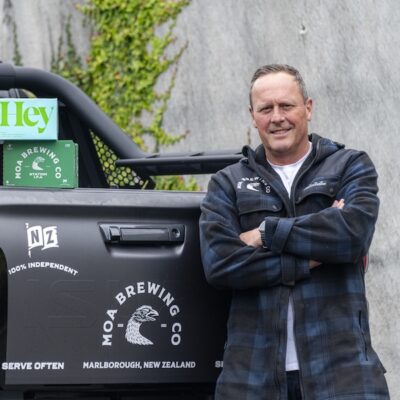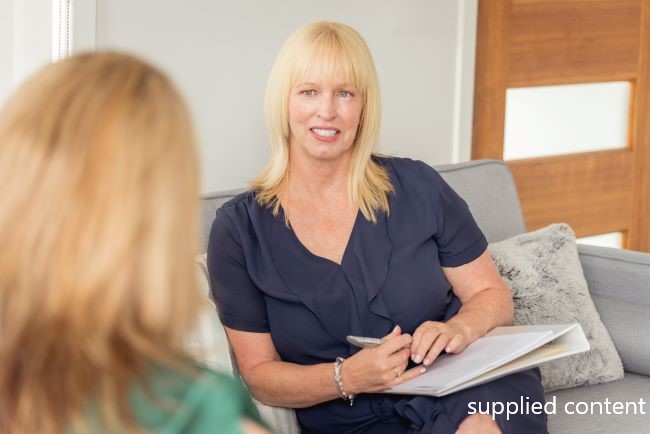Agents for change
This year’s Small Business Expos are selling the ‘S’ word to thousands of New Zealand business owners. The message is; sustainable business is no longer an option and long term it will become a necessity for survival. By Glenn Baker.
K, so you’re sick and tired of the ‘S’ word. That’s perfectly understandable – you read about sustainability everywhere, you’re reading about it now. I’m already sick of typing the word – it has too many letters. But the fact of the matter is you simply can’t ignore the ‘S’ word – particularly if you’re in business – because to ignore it is to ultimately condemn your business to a slow, inevitable death. Sustainable business has become the responsibility of all business owners right down to the corner dairy. Long term it will be mandatory for business survival – the evidence is hard to ignore, regardless of your opinion on global warming.
For Sarah Trotman, small business sector specialist and the driving force behind New Zealand’s Small Business Expos, the defining moment on sustainable business came some months back. A staff member had asked if she could take home 500 surplus plastic show-bags from the 2007 expo for her husband to utilise in his car parts business.
Unfortunately this would mean compromising the branding – and so the decision was made to dispose of the bags, which meant more waste to the landfill.
"I felt terrible about that decision," recalls Trotman. "But the upside was that it got me thinking – it made me focus on my business from a sustainable perspective."
Like many of New Zealand’s business owners, Trotman had heard a lot about sustainable business, but didn’t know exactly what action to take. This dilemma is now being addressed as the main focus of the 2008 Small Business Expos – the aim is to educate business owners about sustainable business practices and the opportunities they present, and, show them the steps they can take to actually get started.
"Our Genesis Energy-sponsored Sustainability Zone groups all the leading authorities on the subject together and it’s an area where business people can learn all they ever wanted to know about sustainability and walk away with key actions mapped out," says Trotman. "The biggest challenge for businesses right now is to find the support services that can translate the talk into action. We’ll have that problem solved at the expo."
Of course it wasn’t on to just make sustainability the main theme of the expo’s National Bank Seminar Series and not walk the talk with her own business, Sarah Trotman and Associates (STA) – as well as the Vero Business Support Awards and show magazine. It was imperative that they set an example at STA.
The action plan for sustainability at STA was instigated with the assistance of Simon Harvey of BusinessLAB, a strategic planning consultancy
that specialises in sustainability, and CarboNZero status is expected to be in place by the time the Expo rolls around in April.
"Our journey to sustainability has so far been a quick one," says Trotman, "thanks largely to the 100 percent commitment of staff, who clearly realised how important the matter is."
And what sort of reaction to the expo theme has there been from exhibitors and suppliers? "Surprisingly people aren’t really sick of the ‘S’ word – instead they’re somewhat curious about it," says Trotman. "It’s been generally positive. Some suppliers may have reacted a little defensively, but that can be put down to a lack of understanding. Simon has come to a lot of our meetings with suppliers to educate them on the issue of sustainability, and that has helped."
All exhibitors have also been contacted in regard to measuring the carbon footprint of the expos.
The organisers want to know details such as what exhibitors are bringing to the show, where they’re bringing it from, and how staff will be travelling to the venues. Trotman says the common reaction has been responses going directly in the ‘too hard’ or ‘not now’ pile – but a follow-up phone call and polite conversation about the reasoning behind the request normally produces the desired results.
There are other major initiatives with this year’s expos (all are outlined in the special Small Business Expo supplement in this issue of NZBusiness) – not least of which is the 100 percent biodegradable billboards, 100 percent recyclable expo bags and halving the amount of flyers printed.
"It forced us to do a major rethink on our marketing especially," recalls Trotman. "We had to ensure that we were investing our marketing budget in all the right areas."
Times have changed
Small Business Expo aside, a good indicator of the heightened awareness of sustainability amongst the nation’s business owners has been the sudden upsurge in members of the Sustainable Business Network (SBN).
CEO Rachel Brown reports a jump in members from around 300 just two years ago to today’s muster of 650 – and all without any significant promotional activities. Funding and staffing levels have had to be boosted as a result.
"We had 25 percent growth in 2007, and it’s already looking like this year will be a repeat. After being static for a long time, it really took off last year."
Brown has noticed a swing in the market – sustainable business practices are going mainstream she says, businesses are now sitting up and taking notice and it is being driven by public expectations, and by central Government and larger corporates’ who are demanding that their suppliers fall into line. The flow-on effect of supply-chain sustainability compliance is huge, and Brown finds this exciting.
"Until recently the focus by larger companies especially, was on social or ‘cause related’ marketing. It’s gone beyond that now – people want to know what companies are doing about cleaning up their own back-yards," says Brown.
Unfortunately there is a lot of misinformation and "huge confusion" out there about how to go about practicing sustainable business, she says.
"People are racing at solutions, carbon neutrality has become a big thing, but businesses need to think through the wider issues – make a proper assessment of the risks and the opportunities associated with those risks. For example, what if fuel costs were to double – would your sustainability-driven business plan still cope?
"Sustainability is not just about doing good environmental deeds either. It’s about whether your business is contributing to a positive future for everyone on this planet, and ensuring that your products or services are not undermining this goal."
Brown says those businesses that see the ‘S’ word as an opportunity, rather than a cost burden, and get in early, are going to benefit the most in the long term. But she agrees with Trotman in that businesses can currently lock into the vision; but they lack the knowledge on how to get there.
There’s a word of caution too, the sustainability accreditation industry has become very competitive, and there are concerns over the integrity of some labelling – organic certification for example. Brown says it’s possible to be wrongly sold one scheme over another, and sustainable business consultants are coming ‘out of the woodwork’. So it’s important to consult SBN or other credible organisations before signing up.
And no, sustainable business is not just a ‘once-only add-on’, says Brown, it has to be a daily part of your business – period.
Of course the SBN is an excellent starting point for businesses – and you can access them online (www.sustainable.org.nz). They have big plans for 2008 too – with further Get Sustainable Challenge workshops and training opportunities coming up; the introduction of online sustainable business tools; an online business-to-business sustainable product directory (so businesses can align themselves with other sustainability-focused suppliers); and a by-invitation-only Think Tank to encourage new ideas.
"It’s no use trying to resist the swing to sustainable business," says Brown. "It’s time to pick it up and run with it or you’ll eventually become irrelevant."
Her argument for joining the cause? It’s about:
Retaining your market share.
Retaining your staff (employees, like customers, prefer responsible companies).
Creating efficiencies and cost-savings through smarter use of resources and energy.
Great risk management – your products or services are future-proofed.
Being seen as a leader, not a laggard.
Encouraging the creation of more innovative products that have global, not just local, significance.
Other benefits
There are other compelling reasons to start down the ‘S’ road. As BusinessLAB’s Simon Harvey points out, it forces business owners to examine every aspect of their business spend.
"Your business may have been ticking along for years – here’s a real opportunity to question everything – to consider new ways, better ways, of doing things.
"[Sustainable business practices] also increase the longevity of your business," suggests Harvey. He likens the recent groundswell of interest to the beginning of a "third industrial revolution". – "a revolution that still produces benefits for consumers but, unlike the other two, doesn’t undermine the ability for us all to live on the planet."
Harvey concedes that the issue of cost often raises its ugly head whenever the ‘S’ word is mentioned. "That’s the perception – but you have to look at it as an investment, and there will always be a payback period, like there is with any new initiative."
He cites the Les Mills Gyms’ sustainable strategy involving eco-bulbs, LED lights and a water heating upgrade. The payback period on the investments is just a few years and the benefits will continue to flow straight onto the bottom-line for many more years to come.
Harvey has written a number of excellent articles on the subject of sustainability in business, and he suggests it’s about seeing the whole picture.
"Why would you want to run a business that damages your kids’ quality of life – and their kids – or degrades the environment? For business it’s about taking responsibility. Sustainability and responsibility are two sides of the same coin."
He says the key for business owners, starting now, is to consider the costs of the whole lifecycle of their product or service. Harvey, who is also an accredited advisor with The Natural Step (a framework that offers an internationally recognised strategic solution for sustainability), also believes that climate change is just the tip of the iceberg.
"Over time new issues will surface as a result of increasing pressure from industrial activity and consumption on our environment and our health. As the health of our planet and people are threatened, further changes to [business] and the economy will have to occur."
Meantime, to get started, Harvey suggests taking stock of your business’s use of energy, vehicles and waste disposal. Is there scope for improvement? It could be little things like turning off IT equipment and upgrading to more efficient lighting. Can you switch to a renewable energy supplier? How about auditing your suppliers? Do they take responsibility for their products at the end of their lifecycle? (Resene is a good example.)
However, despite all our best efforts so far, Harvey is convinced that a large section of the business community is still in denial over sustainability – and New Zealand business is lagging behind overseas competitors, particularly in Europe and the UK, where there has been great progress.
He predicts a shift for overseas consumers to buy local as they become more educated on the food miles debate.
"The food miles issue especially is a serious one and we have got to do something proactive – it’s no good being reactive," he says. "It’s pushed strongly by the UK supermarkets and people listen to them."
[It may be contentious, but stores like Tescos now have carbon and food miles rating systems on many of their products].
There has been some progress, he concedes, particularly from an efficiency point of view.
"The challenge now is not to stop at just efficiencies and look closer at benefits for customers. It’s time to take a new approach."
If you don’t believe the move to ‘buy local’ – you might like to talk to Tim Rainger at Creo Sustain. For an example he uses the M25 restaurant in London – it procures supplies only within the M25 ring road that encircles London. New Zealand’s Farmers Markets are another example.
Rainger, who heads a division of Creo Communications that was set up two years ago to advise clients on sustainability matters, acknowledges that New Zealand has a unique position in the global food miles debate as one of the world’s major food producers.
"But Brand NZ will increasingly come under scrutiny for its environmental performance, and it’s important that we walk the walk in all areas of business."
Glenn Baker is editor of NZBusiness.
Additional resources:
SBN: www.sustainable.org.nz
Business New Zealand: www.businessnz.org.nz/file/1338/A%20STABLE%20CLIMATE%20FOR%20BUSINESS.pdf
CarboNZero: www.carbonzero.co.nz
The Natural Step: www.tns.org.nz
Carbon Disclosure Project: www.cdproject.net
Green Office Guide: www.greenoffice.org.nz
Energy Efficiency & Conservation Authority: www.eecabusiness.govt.nz/emprove/
NZ’s emission trading scheme:
www.climatechange.govt.nz
We’ve come a long way from the ‘tree-hugging’, woolly jumper green minority movement of the 70’s. 2007 proved to be a watershed for consumer awareness on how buying decisions affect the planet, according to eco expert Linda Shaw who runs seminars with ‘action tanks’ for sustainable workplace practices (www.mecology.com).
"
The Inconvenient Truth, the International Panel on Climate Change reports, Planet Earth documentaries, new ‘green’ pages in newspapers and magazines, media reports on environmental matters, websites dedicated to raising awareness and government creating policy that will affect our future, all signal momentous change for businesses," says Shaw. Cradle to Cradle – Remaking The Way We Make Things the talk is of a ‘closed loop system’. "This means the result of production is an environmentally sustainable product where waste is either a ‘technical nutrient’ (something to be up cycled into another product) or a ‘food nutrient’ (that can be fed to animals or humans).
Linda Shaw’s philosophy of Mecology is about sharing information with businesses and individuals on sustainable practices, environmental ethics and healthy business and personal eco systems.
The growth in the popularity of the carboNZero programme has been nothing short of spectacular over the past 12 months.
When contacted at the end of February, Ann Smith, programme leader at Landcare Research said they had 20 certified companies, with a further 30 firms going through the participant programme, and another 100 contracted to start the programme.
But what’s even more amazing is that 400 other companies were also considering signing up, and that at the same time last year there were only two certified companies.
Landcare Research has had to expand big time to meet the demand – staff numbers have jumped from one or two 12 months ago, to 12 today. And, Smith says, they’re about to take on another four employees. Landcare Research has also recently updated its website with all the latest information on its carbon neutral programmes.
"It’s great to see companies putting their money where their mouth is," says Smith. "Walking the talk does wonders for their credibility."
One of the firms now doing the walking is Lowndes Associates – which has the distinction of being New Zealand’s first carboNZero certified law firm.
Partner Mark Lowndes says they were prompted to act by New Zealand’s poor per capita emissions performance and by knowledge gleaned through working in international legal networks such as Multilaw.
"It seemed like the right thing to do. We may only be 35 people, and we’re hardly going to impact the climate on our own – but we can do our bit and we can help give the issue a higher profile," says Lowndes.
Becoming carbon neutral also makes business sense, says Lowndes – putting their firm in good stead for attracting international work. He points to the ‘carbon calorie’ rating planned by UK supermarket Tesco, and Wal-Mart’s move to ban all products that contribute to global warming as a warning that Kiwi companies face a real risk of being left behind unless decisive action is taken now.
Mark Lowndes says it could have been tempting to use the excuse that they don’t have ‘big corporate’ resources to go through the accreditation process, "but the whole staff climbed in with enthusiasm. While the process wasn’t easy, it was manageable. Once we made the decision to proceed in May 2007 it took only a few months and wasn’t a huge cost."
The process itself involved Landcare Research measuring the firm’s carbon footprint, which was then audited by Price Waterhouse. A plan to reduce the footprint was devised and carbon credits purchased (Lowndes opted for credits relating to windpower and biomass energy generation). carboNZero accreditation is reviewed every 12 months.
Mark Lowndes says the process has exposed significant energy savings for the firm, and all staff have received information and training about taking responsibility for their own personal carbon footprint.
Taking the lead
Engineering consultancy, Maunsell, has chosen to take a leadership role in the area of sustainability. It largely comes with the territory, as the company has incorporated sustainability measures into many areas of its work including green building design, environmental behavioural change, and climate change advice. It has a dedicated environmental/buildings team working to make clients’ projects and businesses more sustainable and environmentally friendly.
Maunsell’s sustainability initiatives are extensive and so far include worm bins for the disposal of food waste, battery recycling centres, biodegradable plates and cutlery for social events, eco-friendly courier packs, a Honda hybrid electric-petrol company car, and a dedicated ‘Mobilize’ travel plan for encouraging staff to use alternative forms of transport to and from work.
Partnering with Cityhop, the company has also embraced the car share model popular overseas for its Newmarket office staff to get around town during the day. And it is a member of the Sustainable Business Network – that almost goes without saying.
All these initiatives most businesses would have no trouble implementing, says Maunsell’s New Zealand regional director Dean Kimpton.
"At Maunsell we’re aiming to inspire a culture that embeds sustainability into all aspects of our work," he says. "Part of this is creating an environment where our staff are encouraged to come up with ideas for new sustainable initiatives. These are channelled to the appropriate senior management who take cost, staff disruption, effect on the environment, alignment with Maunsell’s values and other considerations into account in deciding whether its rolled out. Our five offices implement initiatives locally and share their knowledge with the rest of the business, adopting each other’s ideas where appropriate.
"At the national level, we have appointed a Sustainability Leader and a Sustainable Development Steering Group to drive inclusion of sustainable initiatives in the company’s project solutions and to increase employee awareness on sustainability issues.
Implementation of a Green Building Initiatives Register for Maunsell office refurbishments aims to focus on sustainable design and to achieve a green star rating for all the new and refurbished buildings we occupy."
Kimpton says businesses can definitely do more to be effective in combating climate change. Climate change will have a significant effect on the way that the world operates because it will affect basic human requirements such as food, water, energy and transportation. Tackling these issues needs to be at the heart of all business values and strategic plans now, regardless of their size.
"Apart from that it makes good sense to go sustainable!" he says.
"Success in sustainability and on global climate change will only, and ultimately, be successful as a result of good leadership. Legislation can give direction, but it determines the minimum acceptable. Leadership is about finding where the maximum opportunity to make a difference lies."
"Consumers are increasingly savvy. More and more people are realising they have a choice when purchasing and a large number of people now shop on green-based values. Consumer attitudes also continue to evolve as new and serious information is revealed about what is happening to the planet.
"A tipping point is coming. Consumers will soon demand businesses become environmentally committed to action so they can shop with you. Fail to be aligned with those values and you may not be around in ten years time."
"The way we do business today will not work in the anticipated global environment of the future. In ten years time we will likely either have a new world with technologies and business practices that have overcome the environmental issues we currently face and have secured a sustainable future for all living species – or we will live in a more localised world with fewer imports and exports, a scaled down quality of life and constant worry about food, water and national security. In this environment, many current businesses will fail.
"Those businesses that are waiting for a greater demand for environmentally friendly products are missing a key trend. It’s already happening. A significant majority of baby boomers with their disposable income are concerned about the legacy they are leaving their children and grandchildren and are making lifestyle and purchasing decisions accordingly.
If businesses haven’t planned for this changing marketplace, they’re already missing opportunities."
Consumer education is a critical factor in this transition, says Shaw.
"Consumers need to become realistic and be prepared to pay the full cost of goods and services which include the ‘free’ environmental resources that are often not even considered – such as water (free from the sky – but costs of processing and energy to deliver to your door) or nutrients in soil (free except when you supplement it with artificial fertilisers). Businesses need to be courageous and stop the undercutting game."
Shaw says the new ‘green marketers’ will play a crucial role by being able to influence their clients to adopt sustainable business ethics and go for the real deal on environmental values in action.
In the bigger picture, Linda says the message won’t simply be ‘green’ but will go a step beyond to become ‘regenerative’.
"This new philosophy will see sustainability become the base line for all business, while all the action and exciting innovation is happening through the principles of regeneration.
"What if the planet itself was our customer? What if all our business processes worked on the principle of biomimicry – how does nature do it? It would require businesses to embrace the philosophy that there would be no waste created; only products or services.
"This requires a radical rethink of production methods, use of natural resources and what to do with waste. Profit will become a by-product of successful regeneration, as will committed and enthusiastic customer advocates."
In McDonough and Braungart’s book
"Some businesses will inevitably die in such an environment – but others will grasp the new challenges and become pioneers on a journey towards ethical environmental principles. Some have already made that transition."






